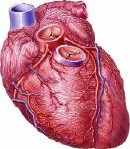Auscultation alone is poor screening test; handheld echocardiography significantly improves detection
THURSDAY, March 19, 2015 (HealthDay News) — Handheld echocardiography (HAND) and auscultation improves detection of rheumatic heart disease (RHD) compared with auscultation alone, according to a study published online March 16 in Pediatrics.
Justin Godown, M.D., from the Monroe Carell Jr. Children’s Hospital at Vanderbilt in Nashville, Tenn., and colleagues examined the incremental value of HAND over auscultation for identifying RHD. A cohort of 4,773 schoolchildren in Uganda was screened for RHD using standard portable echocardiography (STAND) performed by experienced echocardiographers. Any child with mitral or aortic regurgitation or stenosis underwent HAND and auscultation together with a randomly selected group of children with normal findings (subgroup of 1,317 children). Six experienced cardiologists interpreted the STAND and HAND studies.
The researchers found that for the detection of RHD or valve disease, auscultation had uniformly poor sensitivity. Compared with use of auscultation, HAND correlated with improved sensitivity for the detection of definite RHD (97.8 versus 22.2 percent), borderline or definite RHD (78.4 versus 16.4 percent), and pathologic aortic insufficiency (81.8 versus 13.6 percent).
“Auscultation alone is a poor screening test for RHD,” the authors write. “HAND significantly improves detection of RHD and may be a cost-effective screening strategy for RHD in resource-limited settings.”
The study was supported by funds from General Electric.
Copyright © 2015 HealthDay. All rights reserved.








